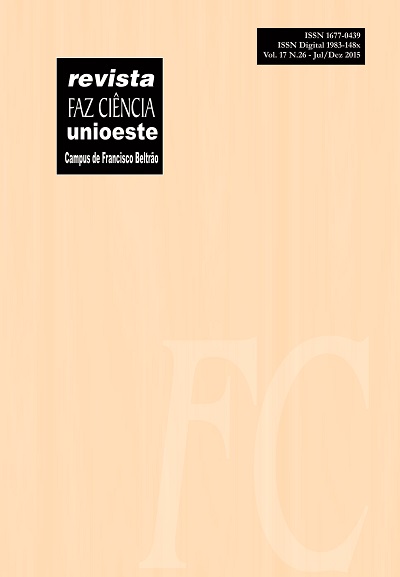FOOD SECURITY, RURAL PRODUCTION AND INCOME INEQUALITY IN THE AMAZON: A CASE STUDY ON SUSTAINABLE DEVELOPMENT PROJECT BONAL - ACRE - BRAZIL.
DOI:
https://doi.org/10.48075/rfc.v17i26.11735Keywords:
Segurança Alimentar, Desigualdade de Renda, Autoconsumo, Produção Familiar Rural, Amazônia.Abstract
Hunger and income inequality is a topic increasingly discussed worldwide. Food insecurity is a disease that affects one part of society, and the countryside is not immune. Studies show that the farmer goes through poverty and misery, however, in rural areas the production for self has the ability to reduce hunger. However the reduction of production for self-consumption in theory, increases the level of poverty and misery. This work aims to analyze the relationship between poverty, food security and self-consumption of families settled in the Sustainable Development Project (PDS) Bonal, the municipality of Senador Guiomar, Acre. Therefore, we use the Socioeconomic Analysis project methodology of Rural Family Production Systems in the State of Acre (ASPF). With the results of the standard of living (NV) was possible to make a one-dimensional analysis of the income of families confronted with the minimum wage (MW), showing strata in the situation of poverty and misery in the PDS Bonal. It can be concluded that the production for self-consumption is an important factor to increase food security and also reduce poverty and misery of the PDS Bonal.
Downloads
Published
How to Cite
Issue
Section
License
Aviso de Direito Autoral Creative Commons
Política para Periódicos de Acesso Livre
Autores que publicam nesta revista concordam com os seguintes termos:
1. Autores mantém os direitos autorais e concedem à revista o direito de primeira publicação, com o trabalho simultaneamente licenciado sob a Licença Creative Commons Attribution que permite o compartilhamento do trabalho com reconhecimento da autoria e publicação inicial nesta revista.2. Autores têm autorização para assumir contratos adicionais separadamente, para distribuição não-exclusiva da versão do trabalho publicada nesta revista (ex.: publicar em repositório institucional ou como capítulo de livro), com reconhecimento de autoria e publicação inicial nesta revista.
3. Autores têm permissão e são estimulados a publicar e distribuir seu trabalho online (ex.: em repositórios institucionais ou na sua página pessoal) a qualquer ponto antes ou durante o processo editorial, já que isso pode gerar alterações produtivas, bem como aumentar o impacto e a citação do trabalho publicado (Veja O Efeito do Acesso Livre).
Licença Creative Commons
Esta obra está licenciada com uma Licença Creative Commons Atribuição-NãoComercial-CompartilhaIgual 4.0 Internacional, o que permite compartilhar, copiar, distribuir, exibir, reproduzir, a totalidade ou partes desde que não tenha objetivo comercial e sejam citados os autores e a fonte.


